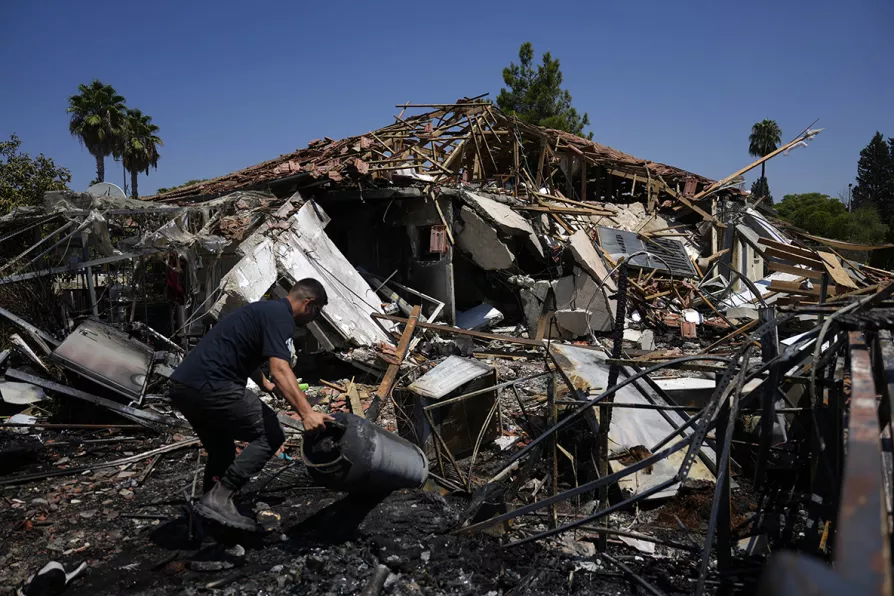Hezbollah launches more than 50 rockets into the Israeli-occupied Golan Heights

 A man works next to a destroyed home after rockets struck in Katzrin, in the Israeli-annexed Golan Heights, August 21, 2024
A man works next to a destroyed home after rockets struck in Katzrin, in the Israeli-annexed Golan Heights, August 21, 2024
HEZBOLLAH launched more than 50 rockets from Lebanon today, hitting a number of targets in the Israeli-occupied Golan Heights.
The attack came as a ceasefire deal between Israel and Hamas remains elusive.
Hezbollah said the attack was in response to an Israeli strike deep into Lebanon on Tuesday night that killed one and injured 19.
Similar stories














